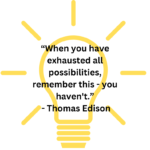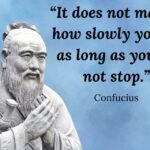“The opposite of love is not hate, it’s indifference.” – Elie Wiesel
At first glance, hate seems like the greatest threat to love. It’s loud. Violent. Destructive. It consumes headlines, ignites wars, and poisons relationships. But Elie Wiesel—Holocaust survivor, author, and Nobel Peace Prize laureate—offered a deeper, more sobering truth. The real enemy of love isn’t hate.
It’s indifference.
Unlike hate, indifference doesn’t shout. It doesn’t burn cities or break hearts with fury. Instead, it shrugs. It looks away. It remains silent in the face of injustice, suffering, and even joy. And that’s what makes it more dangerous.
Because indifference kills slowly—by doing nothing.
Indifference: The Great Neglect
Indifference is the refusal to care. It's the absence of emotion, of connection, of concern. Where love nurtures and hate engages, indifference detaches. It’s the spiritual equivalent of a locked door in the middle of a fire.
When someone hates you, at least you exist in their mind. You evoke passion, thought, response. But when someone is indifferent, you vanish. You become invisible. Unworthy of even a reaction.
That’s what Wiesel experienced during the Holocaust—not just the brutality of the Nazis, but the chilling silence of the world. Millions perished not only because of hatred but because too many turned away. Too many did nothing. Too many chose silence.
The lesson is clear: Hate destroys, but indifference allows destruction to happen.
Why Indifference Spreads Faster Than Hate
Hate requires effort. Indifference only requires apathy.
It’s easier to scroll past a cry for help than to stop and listen. It’s easier to ignore the homeless man on the corner than to ask his name. It’s easier to say, “It’s not my problem,” than to lean in and care.
In a world overloaded with information, it's tempting to become numb. Numb to suffering. Numb to beauty. Numb to people. But the more we choose numbness, the more disconnected we become. And in that disconnection, love dies—not in a fiery explosion, but in a cold, gradual silence.
Indifference in Relationships
Let’s bring it closer to home.
In relationships—whether romantic, familial, or platonic—the warning signs of decay aren’t always explosive arguments. Sometimes, they’re the quiet moments of disengagement. The phone not answered. The message left on “read.” The effort that used to be there… now gone.
Couples often fear fights. But many counselors will tell you: when partners stop arguing altogether, when they stop caring enough to fight, the relationship is in deeper trouble. Indifference is the slow leak that empties love’s tank.
Love requires energy. Attention. Curiosity. Presence. Without those things, love doesn't just weaken—it dies.
Indifference in Society
Wiesel’s quote goes beyond personal relationships. It points to a much larger, more dangerous social issue.
Genocide. Racism. Poverty. Human trafficking. Environmental collapse. These aren’t just problems born of hatred. They’re sustained by global indifference.
When good people stay silent, evil thrives. When we turn away from suffering because it’s uncomfortable, inconvenient, or far from our own doorstep, we allow systems of harm to remain in place.
You don’t have to be cruel to contribute to cruelty. You just have to stay quiet.
Love Requires Action
If indifference is the enemy of love, then action is love’s greatest ally.
Love is not a passive feeling—it’s an active choice. A daily decision to care, to show up, to give, to listen. It’s the parent staying up late to soothe a sick child. The friend who makes time, even when their schedule is full. The stranger who speaks up for someone being mistreated.
Love shows up.
Love sees.
Love cannot co-exist with indifference because love is, at its core, about presence. Indifference says, “I don’t care.” Love says, “I’m here.”
You Have More Power Than You Think
You may not be able to solve the world’s biggest problems today. But you can fight indifference—in your home, your workplace, your community, your heart.
- Notice the people others overlook.
- Speak up when silence would be easier.
- Ask the hard questions, even when they make others uncomfortable.
- Give your time. Your attention. Your presence.
It doesn’t take massive heroics to push back against indifference. Sometimes, it’s as simple as remembering someone’s name. Holding eye contact. Saying, “I see you. You matter.”
The Courage to Feel
Here’s the truth no one wants to admit: caring hurts.
It’s painful to open your heart to the world’s suffering. It’s risky to love when there’s no guarantee it will be returned. It’s vulnerable to step in when others step back.
That’s why so many people choose indifference. It’s safe.
But growth never happens in safety. Purpose doesn’t bloom in comfort. And love will not survive in the cold shadows of apathy.
Caring may hurt—but not caring destroys.
In the End, What Will You Choose?
Every day, we’re presented with a choice: to care or not to care. To engage or look away. To love or remain indifferent.
You won’t always get it right. None of us do. But the goal isn’t perfection—it’s presence.
If we want a world with more love, more justice, more connection… then we must actively resist indifference. Not just in others. In ourselves.
Because the world doesn't just need less hate.
It desperately needs more people who care enough to not be indifferent.
Final Thought:
You don’t need to move mountains. Just don’t ignore them.
Don’t look away.
Don’t stay silent.
Don’t be indifferent.
Because as Elie Wiesel reminds us, the true opposite of love isn’t hate—it’s the cold, lifeless absence of care.
And that is something we can all choose to fight.






